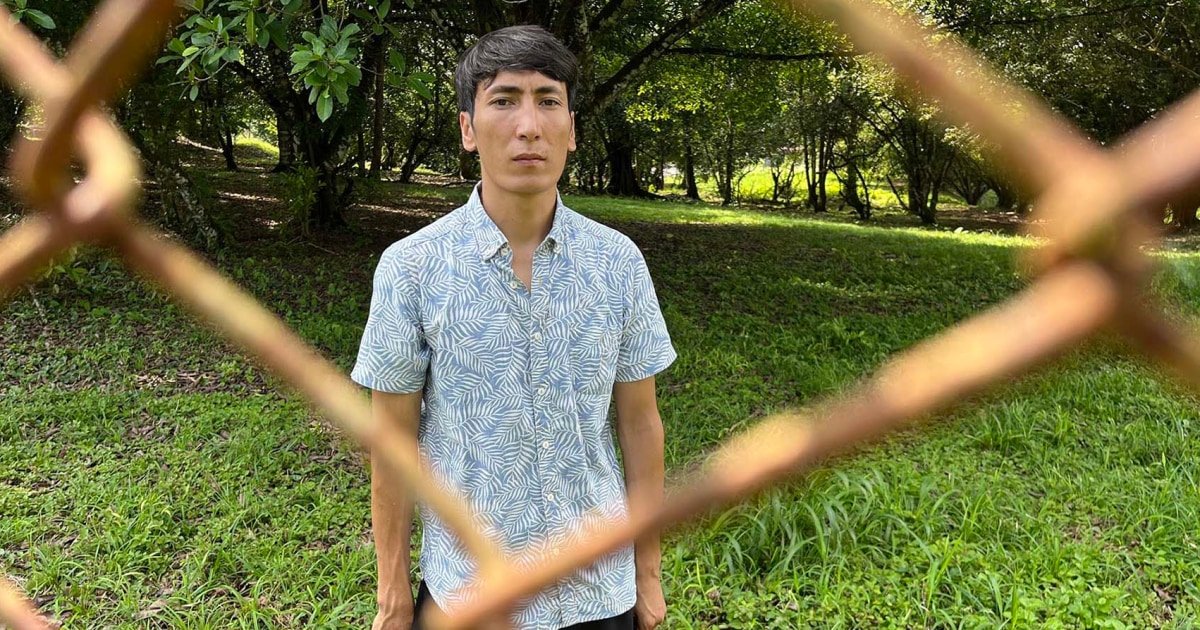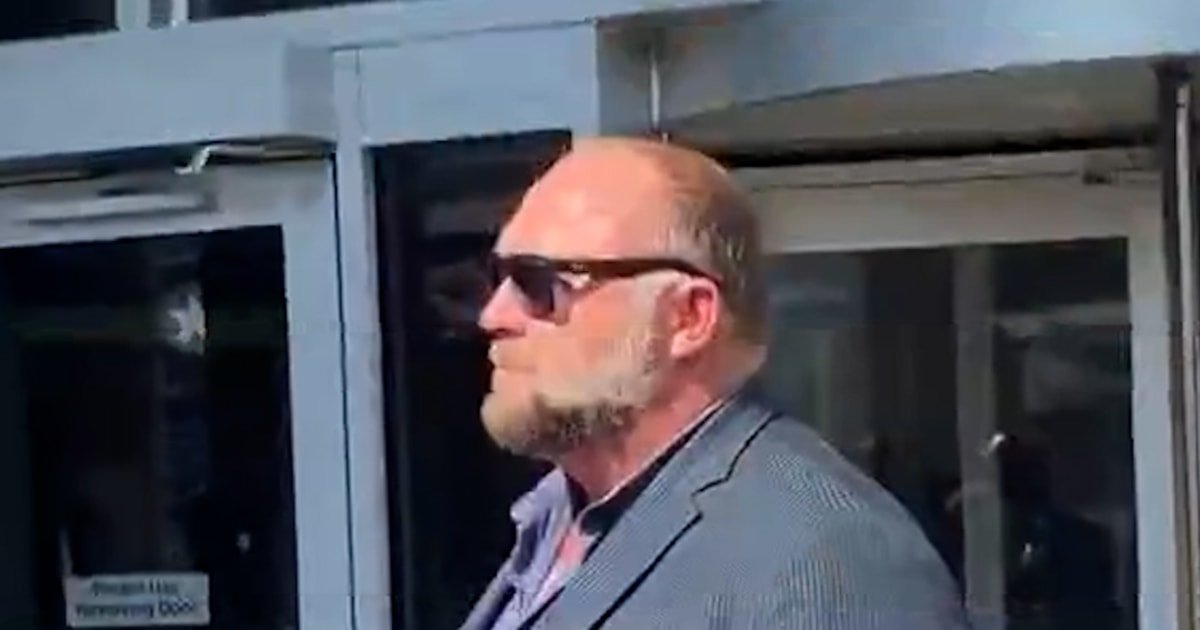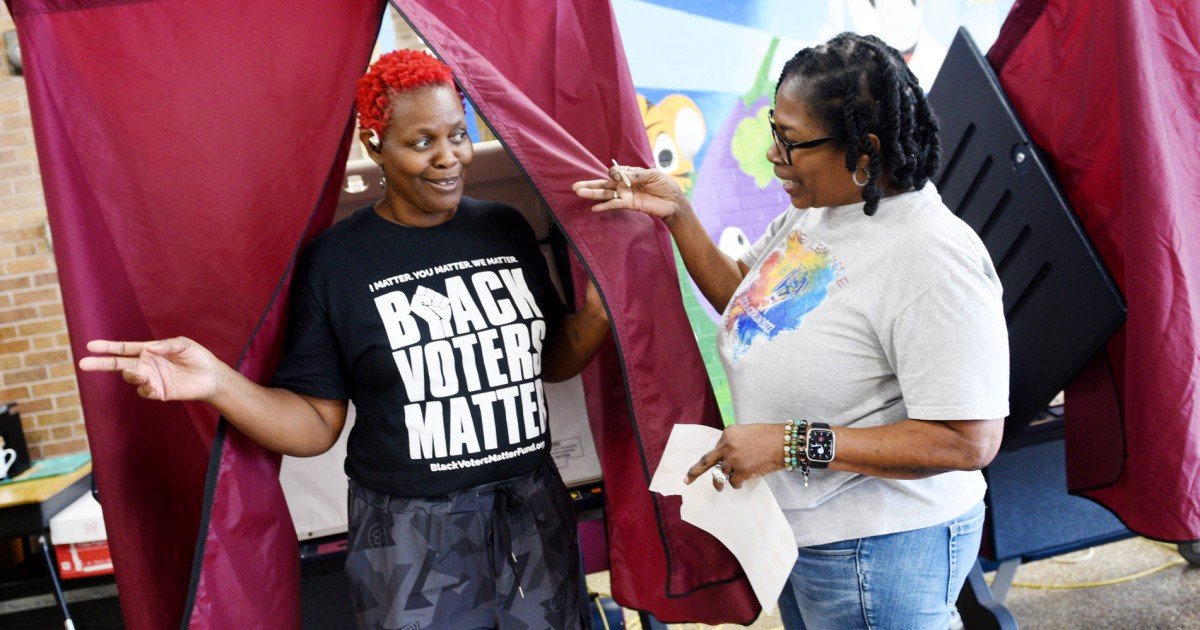Neily, Costa Rica-after being deported from the United States with his wife and 6-year-old son, German Smirnov, a Russian citizen, is being held at a migrant camp in the Central American country. After more than a month there, he says that he is forced to consider staying there to live.
Smirnov, 36, is among 110 migrants, mainly from Asian and African countries, which have been arrested at the Temporary Migrant Care Center (CATEM) since the end of February and are now in Limbo.
Many of the detainees tell news Telemundo, are confused and torn by the limited options offered by Costa Rican officials, including asylum application there, return to their countries of origin, wait for it in the shelter or officially document your case to request asylum in another country. Everything is during high temperatures and bad food and conditions.
But many of the migrants say they do not have a safe country to return and little information to help them.
For the first time since migrants arrived from the United States, and after the weeks of pressure and legislators, the Costa Rican authorities have opened the camp to the media. Several migrants who have confiscated their documents said they feel they have few options about what is coming later.
“They don’t tell us anything here,” said Smirnov. “We are here for almost 40 days.”
Smirnov, who had planned to request asylum in the United States before the Trump administration suspended asylum on the southern border, said it is impossible to return to Russia after fleeing for political reasons. “It’s complicated. I’m ready to stay here, but I have no place to live,” said Smirnov. “I have no job and I don’t speak the local language.”
Costa Rica is one of several Central American countries that has agreed to serve as a bridge between the United States and migrants, many of which come from countries such as China or India.
Until now, six people have fled from the camp without authorization or documents, said Omer Badilla, Vice Minister of the Interior and the Costa Rica Police. More dozen have been repatriated to their countries of origin, while most remain in the center behind a chain link fence, forbidden to leave the facilities.
Until migrants take an official choice, passports and other identification documents will remain confiscated, Badilla said. Until Monday, the country had not received a formal asylum request from any of the migrants, Badilla said.
Badilla said that all migrants have been informed of their options, particularly about the need to formalize their asylum claims with documents in other countries. But he said that many do not want to talk to the authorities.
“They have been told that the case is documented and they are afraid. We only work in documented cases. They are afraid to talk to the police,” Badilla said. “We are working to feel sure we will not take action against them.”
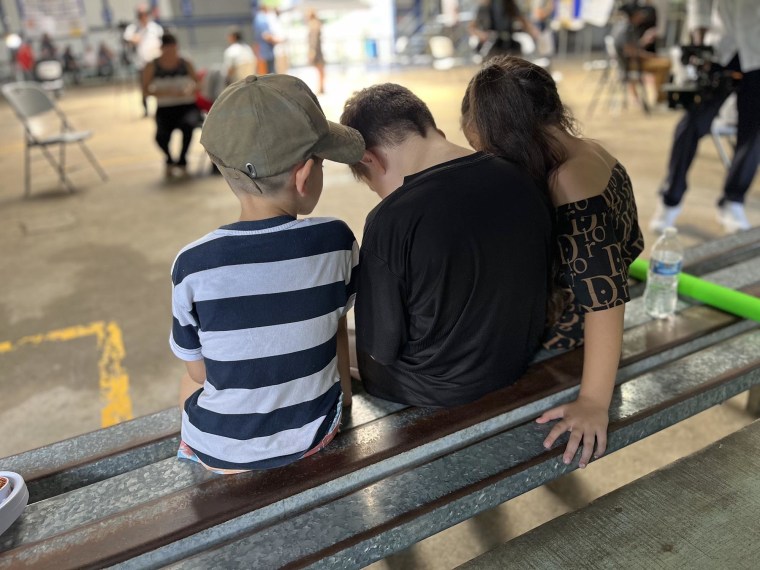
But Badilla said the country guarantees that those who feel a “well founded fear” of returning to their countries of origin will not be forced to do so. Smirnov said that, if he returns to Russia, he could be forced to join the Moscow War against Ukraine.
“They will put me in jail or send me to war,” he said. “It’s simple, because my country is at war with a neighboring country.”
Native of St. Petersburg, Smirnov was an election official who was recruited by the Anti -Corruption Foundation, an organization founded by the late leader of the opposition Alexei Navalny, to expose fraud in last year’s elections. The authorities discovered their agreement with the group, he said, and was forced to flee from Russia.
“They caught me as I recorded the whole process,” said Smirnov. “Maybe someone betrayed me, I don’t know.”
Smirnov, who was arrested for almost a month in San Diego before being deported to Costa Rica, said his family hoped to move to Australia or Canada. But he said that his requests for help to relocate to a third country have been ignored by the authorities.
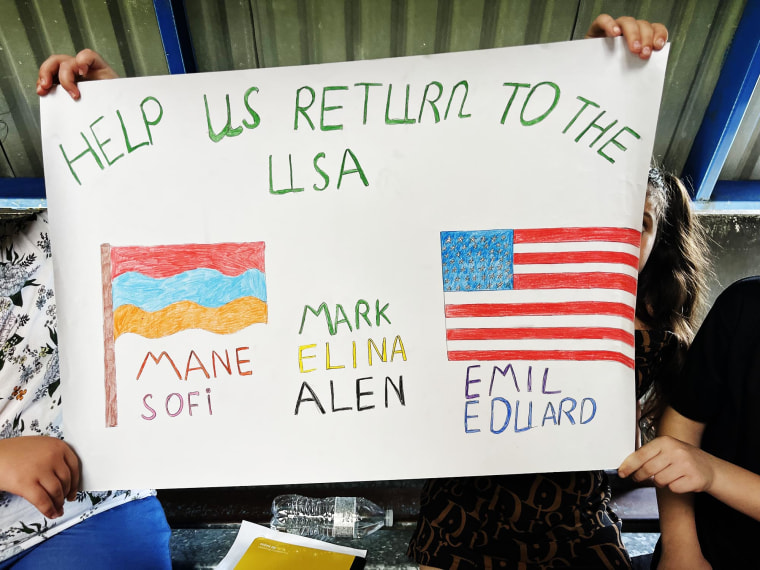
Mohammad Knowledge Asadi, who fled from Afghanistan with his wife, Najia, and his almost 3 -year -old daughter, said he has been looking for a road to another country, such as Canada or Germany. But without visas, he said that the authorities have given him only two options: remain in Costa Rica or return to Afghanistan. Asadi, who runs a construction company, fled from Afghanistan after the Taliban threatened to sell materials to contractors from the United States or other Western countries. Asadi said he had already been arrested after the Taliban returned to power in 2021, and that he cannot risk another period in prison.
“I don’t know what will happen to me,” Asadi said.
Trying to start a life in Costa Rica is not so simple.
“I would like to go to a country that I can live, so I can make a good future for my family, for my daughter,” Asadi said. “But here in Costa Rica, I think it’s not possible for me. I don’t know Spanish, I don’t have information about Costa Rica’s culture and I don’t have a family here to support me.”
The conditions in the camp have not done their time in detention, the migrants said. Alexandra, a Russian migrant who requested to go with his first name for fear of the reprisals of the Russian government, said that many in the camp are nervous, stressed and lost. There is little ventilation in the middle of the climate of more than 90 degrees, and many have become ill.
“We have no air conditioning or fans, some families have sick children and some women have passed out,” he said.
Asadi also said that while the food had been provided by a local restaurant, paid by the United States, those meals have been arrested. Migrants have been living with beans and rice most of the days, which is particularly difficult for babies, since it has been a challenge to access any baby food. And little drinking water is provided throughout the day.
“We are not free to get out of here. Here, it’s like a jail,” Asadi said. “Children cry every day. They cry.”
The role of Costa Rica in US deportations has generated criticism during the last weeks, and the defenders of immigrants say that the country is complicit in the violations of human rights of the United States. Badilla has said that Costa Rica agreed to accept migrants “due to our history and customs as human rights protectors”, and that the agreement with the Trump administration is not based on any special condition.
“We responded to the United States government application, and we lift our hands to help them,” Badilla said.
Costa Rican President Rodrigo Chaves said at a press conference in February that the country is helping his “economically powerful northern brother.”
“If they impose a tax in our free zones, it will fuck us,” said Chaves. “I don’t think they do it, thank God … love is paid with love … two hundred will come, we treat them well and leave.”




